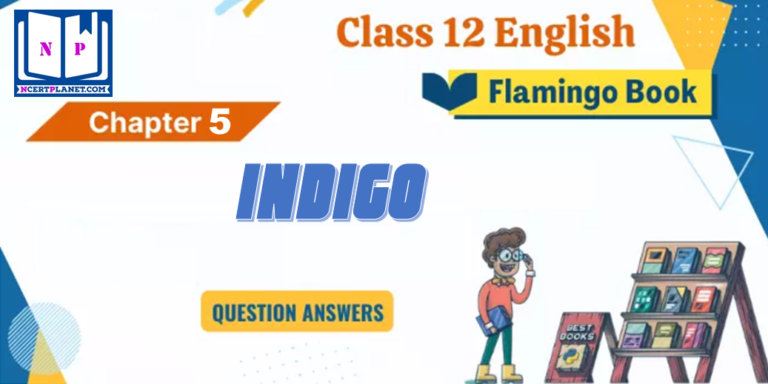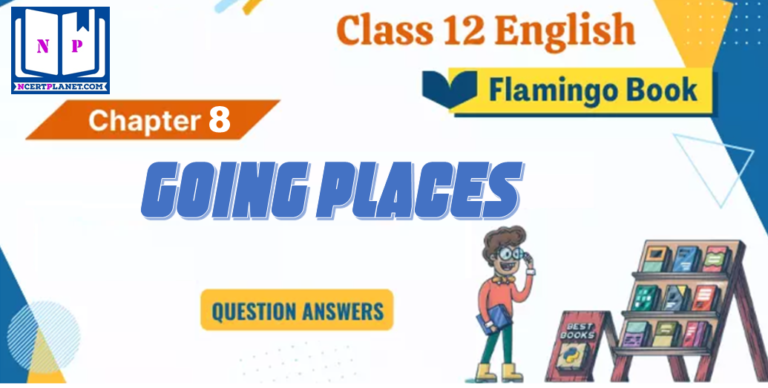Class 10 - English : Grammar
Chapter 3 - Active and Passive Voice

Top Block 1
1. Voice:
Voice is that form of the transitive verb that shows whether the subject of the sentence is the doer of the action or has the action done to it. For example:
‘Mohan played football.’—This sentence is said to be in the active voice. Here, Mohan is the subject and he is the doer of the action, i.e. ‘played football’. The action of the subject is transferred to the object ‘football because Mohan has done something to the ‘football’. The passive voice of this sentence is:
Football was played by Mohan.
Here the subject is ‘football’ which was ‘object’ in the active sentence. So here something is done to the subject ‘football’, i.e. it suffers the action done by something or someone.
2. Rules for the Change of Voice:
(i) The object of the active sentence becomes the subject of the verb in the passive voice. The preposition ‘by’ is put before it.(ii) The main verb of the active sentence changes into the past participle.
(iii) The form of the verb to be (am, is, are, was, were, being, been) is placed before the main verb according to the tense. The auxiliary verb is changed according to the new subject in number and person.
3. Changes in Pronous
| Active Voice Subjective case |
Passive Voice objcetive voice |
|
|---|---|---|
| I | → | by me |
| We | → | y us |
| You | → | by you |
| He | → | by him |
| She | → | by her |
| It | → | by it |
| They | → | by them |
4. Change in tenses from Active Voice to Passive Voice:
| Tense / Aspect | Active Voice | Passive Voice |
|---|---|---|
| Simple Present | He kills a snake | A sanke is killed by him |
| Simple Past | He killed a snake | A snake was killed by him |
| Simple Future | She will write a letter | A letter will be written by her. |
| Present Progressive | She is singing a song. | A song is being sung by her |
| Past progressive | She was singing a song. | A song was being sung by her. |
| Present Perfect | They have watered the plants | The plants have been watered by them. |
| Past perfect | We had helped him | HE had been helped by us. |
| Future Perfect | I will have beater him. | He will have been beaten by me. |
5. Change of Voice in the Simple Present:
| Active Voice | Passive Voice |
|---|---|
| He reads a novel | A novel is read by him |
| He does not obey his teachers | His teachers are not obeyed by him. |
| Why do you waste time? | Why is time wasted by you? |
| Who teaches you Physics? | By whom are you taught Physics |
| Which book do you read these days? | Which book is read by you these days? |
6. Past Simple Tense
| Active Voice | Passive Voice |
|---|---|
| He did not help me. | I was not helped by him |
| I hold her a story | A story was told to her by me. |
| What did she buy? | What was bought by her? |
| Whom did you meet? | Who was met by you? |
| Did you read this novel? | Was this novel read by you? |
7. Simple Future
| Active Voice | Passive Voice |
|---|---|
| I shall help him. | He will be helped by me. |
| Will you sell this house? | Will this house be sold by you? |
| Who will pay the bill? | By whom will the bill be paid? |
| you will not disturb me. | I shall not be disturbed by you. |
| When will you visit us? | When shall we be visited by you? |
8. Present Progressive
| Active Voice | Passive Voice |
|---|---|
| She is waiting for us. | We are being waited by her. |
| Is he doing his work? | Is his work being done by him? |
| Who is knocking at the door? | By whom is the door being knocked at? |
| Are the children flying kites? | Are the kites being flown by the children? |
| Why is he not waering the plants? | Why are plants not being watered by him? |
9. Past Progressive
| Active Voice | Passive Voice |
|---|---|
| He was writing a letter. | A letter was being writtten by him. |
| What was she doing? | What was being done by her? |
| I was not doing my work. | My work was not being done by me. |
| Wasn’t she singing a song? | Wasn’t a song being sung by her? |
| Were the children playing hockey? | Was hocky being played by the children? |
10. Present Perfect Tense
| Active Voice | Passive Voice |
|---|---|
| Has he done his work? | Has his work been done by him? |
| Shehas read this book | This book has been read by her. |
| Who has stolen my watch? | By whom has y watch been stolen? |
| Have ou not solved this sum? | Has this sum not been solved by you? |
| Hw has not helped me. | I have not been helped by him. |
11. Past Perfect Tense
| Active Voice | Passive Voice |
|---|---|
| She had already cooked the food. | The food had already been cooked by him. |
| Had he not read this letter | Had this letter not been read by him? |
| Whose team had won the match? | By whose tem had the match been won? |
| Hadn’t he done his homework? | Hadn’t his homework been done by him? |
| She had received the parcel. | The parcel had been received by her. |
12. Future Perfect Tense
| Active Voice | Passive Voice |
|---|---|
| He will have recived the letter before you reach there. | The letter will have been received by him before you reach there. |
| She will not have washed the clothers by this time | The clothes will not have been washed by her by this time. |
| Will the gardner have watered plants before 5 p.m.? | Will the plants have been watered by the gardner before 5 p.m.? |
| The peon will have locked the gate by 10 p.m. | The main gate will have been lokcked by the main peon by 10 p.m. |
13. Imperative Sentence
Imperative sentences express command/order, request, suggestion, etc. While changing imperative sentences into the passive voice, we use verbs like advise, request, order, etc.
| Active Voice | Passive Voice |
|---|---|
| Please post this letter. | You are requested to post this letter. |
| Shut the door. | You are requested to shit the door. |
| Work hard. | You are advised to work hard. |
| Light the lamp | Let the lamp be lighted. |
| Never give up hope. | Let hope never be given up. |
| Never tell a lie. | Let a lie never be told OR A lie should never be told. |
14. Interrogative Sentences
| Active Voice | Passive Voice |
|---|---|
| Do you love him? | Is he loved by you? |
| Did he bread window? | Was the window broken by him? |
| Have you taught the boy? | Has the boy been taught by you? |
| What do you want? | What is wanted by you? |
| Why did she beat the servant? | Why was the servant beaten by her? |
| When did you write the letter? | Whe was the letter written by you? |
| Where will you spend your holidays? | Where will your holidays be spent by you? |
| How will you corss the river? | How will the river be crossed by you? |
| Have you helped him? | Has he been helped by you? |
| Will you teach me? | Will I be taught by you? |
15. Modal Auxiliaries
The form of the passive sentences will be: modal + be + past participle:
| Active Voice | Passive Voice |
|---|---|
| You can do this work. | This work can be done by you. |
| He may help you. | You may be helped by him. |
| She might win the match. | The match might be won by her. |
| Could you lend me fifty rupees? | Could fifty repees be lent to me by you? |
| He should respect his elders. | His elders should be respected by him. |
16. Prepositional Verbs
| Active Voice | Passive Voice |
|---|---|
| She objected to my proposal. | My proposal was objected to by her. |
| Has e given up smoking? | Has smoking been given up by him? |
| The children laughed at the beggar. | The beggar was laughed at by the children. |
| Weh accused him of theft. | He was accused of theft by her. |
| We acceded to his request. | His request was acceded to by us. |
17. Quasi – Passive
| Active Voice | Passive Voice |
|---|---|
| This mango tastes sweet. | This mangois sweet when tasted. |
| The shop is building | Ths shop is being built. |
| The rose smells sweet. | The rose is sweet when smelt. |
| Your shirt needs washing. | Your shirt needs to be washed. |
| This medicine tastes bitter. | This medicine is bitter when tasted. |
Mddle block 1
18. Miscellaneous Examples
| Active Voice | Passive Voice |
|---|---|
| Grass grows over the fields. | The fields are overgrown with grass. |
| Someone has stolen my pen. | My pen has been stolen. |
| People say that he is a rich man. | It is said that he is a rich man. |
| It is time to ring the bell. | It is time for the bell to be rung. |
| Your behaviour surprises me. | I am surprised at your behaviour |
| I know him. | He is known to me. |
| music interests me. | I am interested in music. |
| This bottle contains milk. | Milk is contained in this bottle. |
| Twelve months make a year. | A year is made of twelve months. |
| One must do one’s duty. | Duty must be done. |
Exercise (Solved)
Change the following sentences into Passive Voice.
(i) He has missed the train.
Answer : The train has been missed by him.
(ii) Do they speak French?
Answer : Is French spoken by them?
(iii) Was he reading a book?
Answer : Was a book being read by him?
(iv) Compose this letter.
Answer : Let this letter be composed.
(v) Where did you buy this pen from?
Answer : From where was this pen bought by you?
(vi) Who wrote this speech?
Answer : By whom was this speech written?
(vii) One should respect one’s elders.
Answer : Elders should be respected.
(viii) I did not praise anybody.
Answer : Nobody was praised by me.
(ix) He hurt his leg in an accident.
Answer : His leg was hurt in an accident.
(x) Someone was knocking at the door.
Answer : The door was being knocked by someone.



